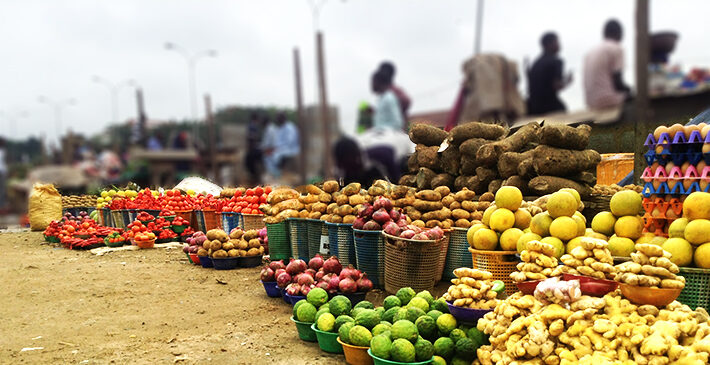Security Concerns in Nigeria: Practical Safety Tips for Daily Life
Security concerns in Nigeria have become a major part of daily life, with rising cases of kidnapping, armed robbery, and street crimes in both urban and rural areas. While the government and security agencies continue to address these challenges, individuals must take personal safety seriously. Whether you live in Lagos, Abuja, Port Harcourt, or a smaller town, staying security-conscious is not optional—it is essential.
Here are practical safety tips tailored to the Nigerian environment.
1. Stay Alert and Aware of Your Surroundings
Many criminal incidents occur because people are caught off guard. Whether you are walking on the street, waiting for a bus, or withdrawing cash at an ATM, staying alert can make a significant difference.
How to Improve Awareness:
- Avoid walking alone at night, especially in secluded or poorly lit areas.
- Minimize distractions like excessive phone use while in public places.
- Be cautious of people who seem to be watching or following you. If you suspect you are being trailed, change your route or enter a busy public place.
- Trust your instincts—if something feels wrong, remove yourself from the situation immediately.
2. Personal Security While Commuting
Public transport in Nigeria can be unpredictable, and criminals sometimes pose as drivers, passengers, or even law enforcement officers. Whether using buses, taxis, or ride-hailing services, take precautions.
Staying Safe While in Transit:
- Avoid entering an empty or nearly empty vehicle, especially at night.
- If using ride-hailing services like Bolt or Uber, confirm the driver’s identity before entering the car. Share trip details with a trusted contact.
- Be cautious of “one chance” vehicles—avoid commercial vehicles that seem suspicious or have people urging you to enter.
- Avoid discussing personal or financial matters loudly in public transport.
3. Protecting Your Home and Family
Home security is critical, as burglars and criminals often target residential areas. Many attacks happen due to weak security measures or predictable routines.
Home Security Tips:
- Always lock your doors and gates, even when at home.
- If possible, install security lights, CCTV cameras, or employ neighborhood security guards.
- Avoid sharing sensitive home information with outsiders, including domestic staff, neighbors, or strangers.
- When receiving visitors at night, confirm their identity before opening the door.
4. ATM and Banking Safety
Cash handling is a major security risk in Nigeria, as criminals often target people at banks, ATMs, or on their way home.
How to Stay Safe When Withdrawing Cash:
- Avoid withdrawing large amounts of cash at once.
- Use bank branches located in secure or busy areas.
- Be discreet while counting money and avoid discussing financial matters in public.
- If possible, use electronic transfers instead of cash transactions.
5. Avoiding Kidnapping and Robbery Risks
Kidnappings for ransom have become a serious security issue in Nigeria, especially in certain regions. Taking precautionary steps can reduce your risk of being targeted.
Reducing Kidnapping and Robbery Risks:
- Avoid unnecessary late-night movements, especially in high-risk areas.
- Do not overshare personal information, travel plans, or financial status on social media.
- If you drive, avoid routine routes—vary your movement patterns to prevent criminals from tracking you.
- If confronted by armed robbers or kidnappers, do not resist—your life is more valuable than your belongings.
6. Road Safety and Police Checkpoints
Navigating Nigerian roads comes with its own security challenges, from police checkpoints to fake security operatives.
Road Safety Precautions:
- At police or military checkpoints, remain calm and respectful. Genuine officers will not ask for bribes or harass you unnecessarily.
- If you suspect a checkpoint is illegal, observe other vehicles—if cars are turning around, be cautious.
- Keep your car doors locked and windows up when driving in traffic to prevent “smash-and-grab” attacks.
- At night, avoid stopping for unknown persons waving you down on lonely roads.
7. Emergency Preparedness
Knowing how to respond to emergencies can make the difference between survival and danger.
How to Prepare for Emergencies:
- Always have emergency contacts saved on your phone, including the police helpline (112 in most states).
- Learn basic self-defense techniques and situational escape strategies.
- Keep a small amount of emergency cash separate from your main wallet.
- If in danger, seek help from a nearby shop, mosque, church, or well-secured public space.
Conclusion
Security in Nigeria requires a proactive mindset. While the government and security forces continue to work on national safety, individuals must take responsibility for their own well-being. By staying alert, securing your home, practicing safe commuting habits, and being cautious in financial dealings, you can reduce your risk of becoming a target.
Remember, safety is not just about luck—it is about being prepared. Stay cautious, stay informed, and most importantly, stay safe.




What do you think?
This strategic reallocation of resources can help companies create a significant competitive advantage.